
Philippe Garot
Latest contributions
All about PCR’s Teaching Assessment Board (TAB)
03 Dec 2025
Learn how session feedback is compiled to create a virtuous cycle of continuous refinement for education in #interventionalcardiology
LAA closure is evolving: are you ready?
17 Nov 2025 – From PCR London Valves 2025
This session addresses the evolving landscape of left atrial appendage (LAA) closure in stroke prevention for atrial fibrillation patients. It reviews unmet clinical needs, evaluates the latest evidence and guideline recommendations, and identifies patient populations that benefit most from LAA closure, with discussions on balancing efficacy...
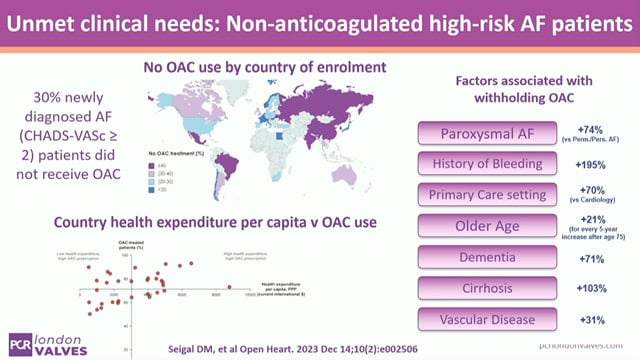
Mitral TEER and LAA closure - LIVE Case
17 Nov 2025 – From PCR London Valves 2025
Watch a LIVE case followed by a recorded case regarding a 91-year-old female with permanent AF, LAD PCI three months earlier, and recurrent GID bleeding who presented with symptomatic severe primary mitral regurgitation due to P2 prolapse and flail. CT imaging showed a LAA with a...
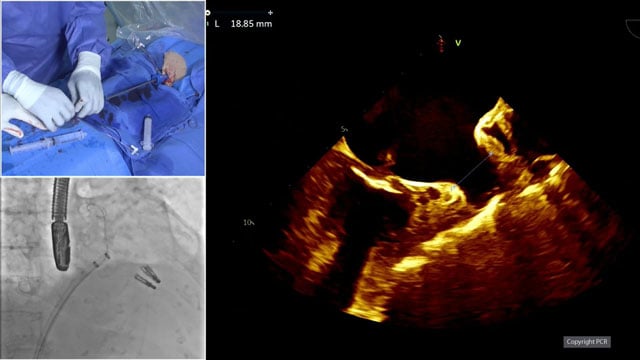
Mitral paravalvular leak closure: procedural planning and step-by-step performance
17 Nov 2025 – From PCR London Valves 2025
This session provides an expert overview of mitral paravalvular leak closure, emphasizing critical clinical and anatomical selection criteria. It covers essential pre-procedural imaging and planning strategies, complemented by an educational recorded case and a review of immediate and long-term procedural outcomes.
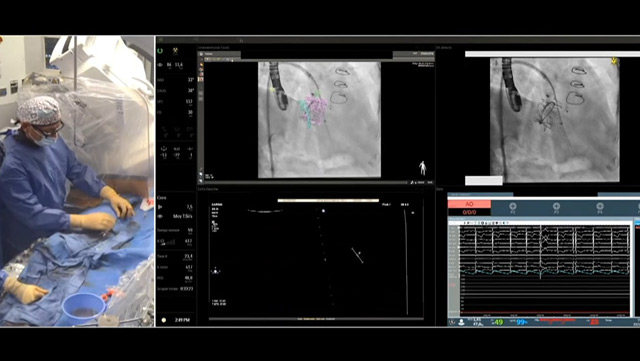
Mastering simple and complex LAA closure: a step-by-step case-based approach
16 Nov 2025 – From PCR London Valves 2025
This case-based session offers a comprehensive approach to mastering left atrial appendage (LAA) closure, emphasizing the critical role of imaging from pre-procedural planning through execution. It covers patient selection, procedural strategies from experienced operators, device selection tailored to anatomy, and nuanced decision-making during challenging device releases...
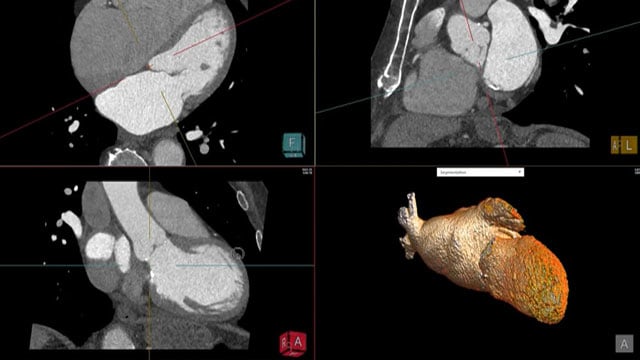
Sealing the risk: a case of left atrial appendage closure
15 Sep 2025
A 76-year-old woman with permanent atrial fibrillation, a history of breast cancer, and a recent diagnosis of an intestinal stromal tumour presents with a high thromboembolic and bleeding risk, making long-term anticoagulation unsafe. Cardiac CT reveals a challenging left atrial appendage anatomy. How would you treat this...

Author

Author

Author

Author

Author
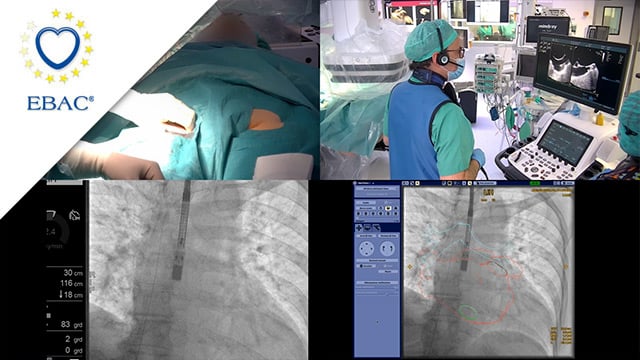
LAAC: current and future indications
03 Jun 2025
Watch the replay of this webinar and learn about the evidence (current guidelines and indications) for LAAC in 2025, and so much more!
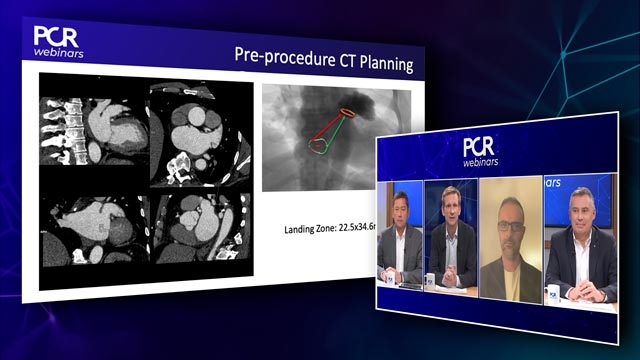
Combined LAA closure and transcatheter mitral valve repair - LIVE Case
22 May 2025 – From EuroPCR 2025
An 82-year-old male patient with a history of PM (pacemaker) implantation in 2024, and ischaemic cardiomyopathy presented with symptomatic heart failure due to severe secondary mitral regurgitation and impaired LV function (EF 40 %). He also presented with recurrent gastro-intestinal bleeding while on DOAC for atrial...
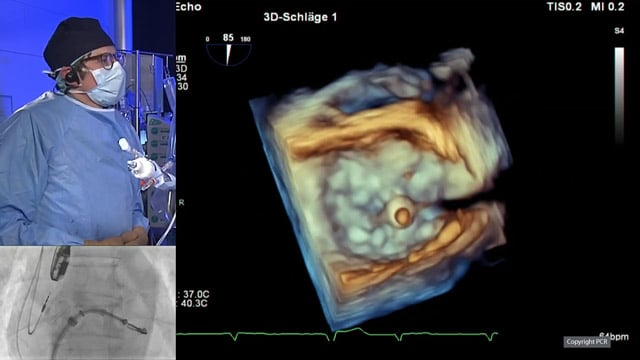
TAVI for bioprosthetic valve failure - LIVE Case
22 May 2025 – From EuroPCR 2025
A 68-year-old male patient with a history of Sapien 3 26 mm TAVI (2021), complicated by the need for two valves (one displaced in the descending aorta) and permanent pacemaker implantation, as well as endocarditis (2022), presented with symptomatic bioprosthesis failure and reduced LV function (20...
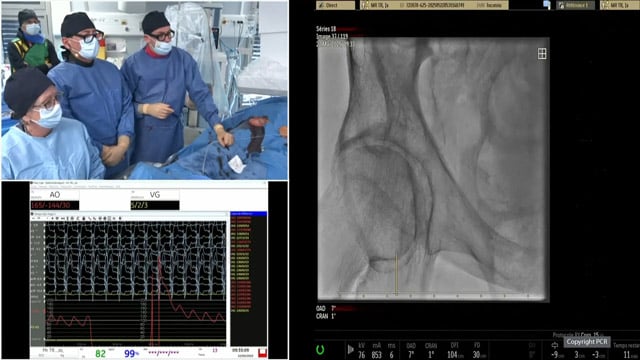
Academic Research Consortium initiative on left atrial appendage closure – standardising definitions and endpoints to move forward
21 May 2025
Philippe Garot describes the EuroPCR 2025 session on left atrial appendage closure (LAAC), which offers a preview of the upcoming new consensus document developed by the Academic Research Consortium.

Author
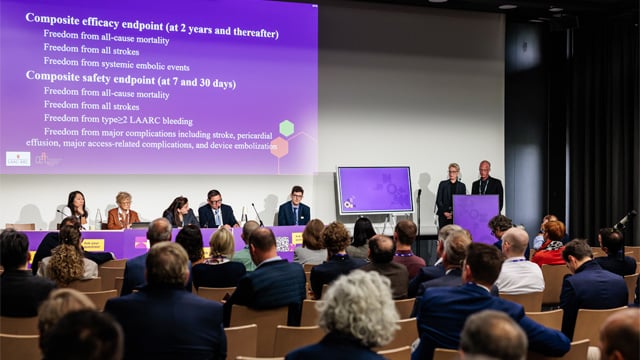
Academic Research Consortium on LAA closure
21 May 2025 – From EuroPCR 2025
Gain comprehensive understanding of the Academic Research Consortium's achievements in left atrial appendage (LAA) closure. Learn how standardized endpoints are streamlined for randomized controlled trials and how collaborative efforts homogenize definitions to advance clinical research.
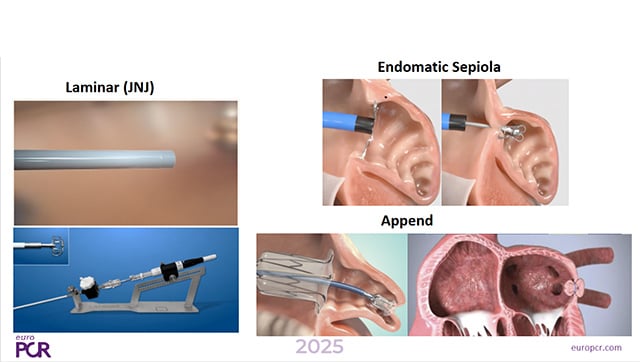
Case-based learning on different aspects of transcatheter LAA closure
21 May 2025 – From EuroPCR 2025
Engage in case-based learning focused on transcatheter left atrial appendage (LAA) closure. This session covers safe transseptal puncture techniques, state-of-the-art standard LAA closure procedures, management of challenging LAA anatomies, and optimization of post-procedure antithrombotic therapy in high-risk patients.
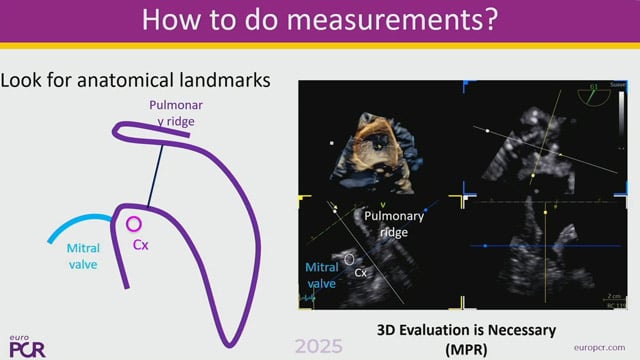
What are the essential aspects of transcatheter LAA closure?
20 May 2025 – From EuroPCR 2025
Ole De Backer and Philippe Garot discuss the rapid evolution of transcatheter left atrial appendage (LAA) occlusion.
They begin by contrasting patient selection in Europe and the US, where approaches diverge significantly: in Europe, very high bleeding risk remains the main criterion, while in the US, LAA...
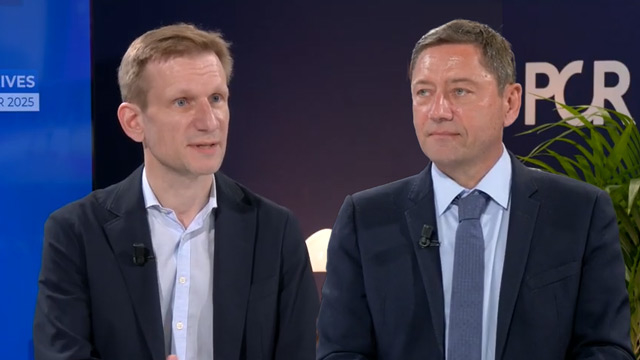
Navigating LAA closure in retrobend chicken-wing anatomy
07 Mar 2025
A 76-year-old female patient with a history of atrial fibrillation and contraindication to long-term anticoagulation presents for left atrial appendage closure. However, preprocedural imaging reveals a challenging retrobend chicken-wing morphology. What is the best technique to optimize positioning and ensure safe, effective closure in this scenario?

Author

Author

Author
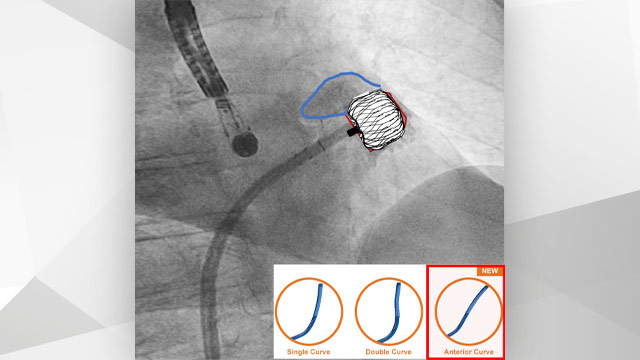
LAA occlusion in reverse chicken-wing
04 Nov 2024
Discover the case of an 82-year-old female with cardiovascular risk factors including hypertension and diabetes (managed with oral antidiabetics), permanent non-valvular atrial fibrillation, who presented with recurrent episodes of epistaxis while on anticoagulants...

Author

Author

Author
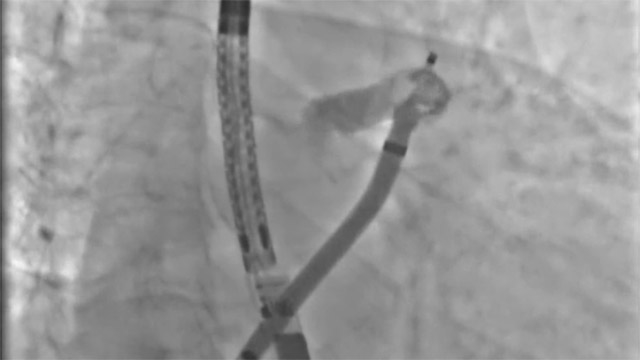
LAA closure - LIVE case
16 May 2024 – From EuroPCR 2024
A 78-year-old woman with hypertension, diabetes, obesity, and a history of pacemaker implantation in 2023, presented with retinal hemorrhage while on NACO for AF. Despite a CHA2DS2-VASC score of 5, anticoagulation was withdrawn. The operators implanted a Watchman device in the LAA via a venous right femoral...
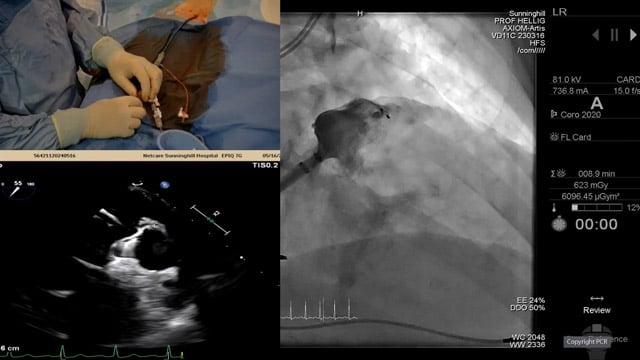
Management of LAA closure complications
16 May 2024 – From EuroPCR 2024
This session explores the various complications that can arise during left atrial appendage (LAA) closure procedures, including pericardial effusion, device embolisation, and procedural strokes. Learn how to identify risk factors, prevent these complications, and effectively manage them through case-based discussions and expert guidance.
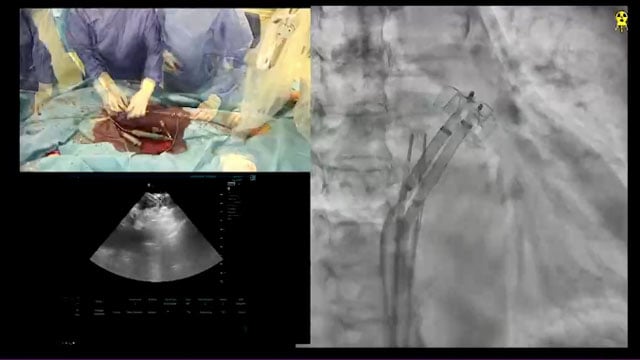
Is this patient a good candidate for Left Atrial Appendage Closure? An interactive rapid-fire discussion
16 May 2024 – From EuroPCR 2024
This interactive session focuses on selecting good candidates for left atrial appendage (LAA) closure procedures. It covers the key clinical elements driving the indication for LAA closure and the technical elements that make a case complex. Through a series of case presentations and discussions, the session...
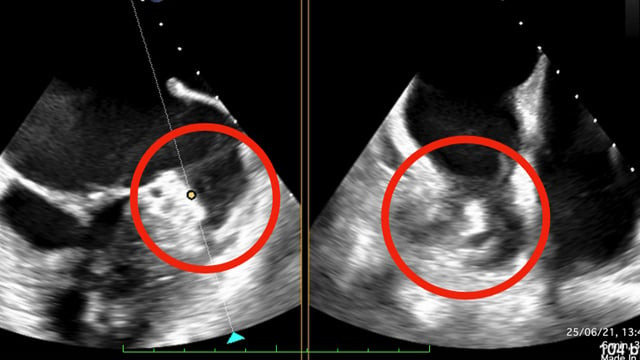
Left main and complex bifurcation stenting
14 May 2024 – From EuroPCR 2024
Watch this session focused on a patient with distal left main stenosis to understand that the stepwise provisional side branch (SB) stenting strategy is the standard approach for most left main trifurcation lesions. Discover the importance of optical frequency domain imaging for strategy determination and bifurcation...
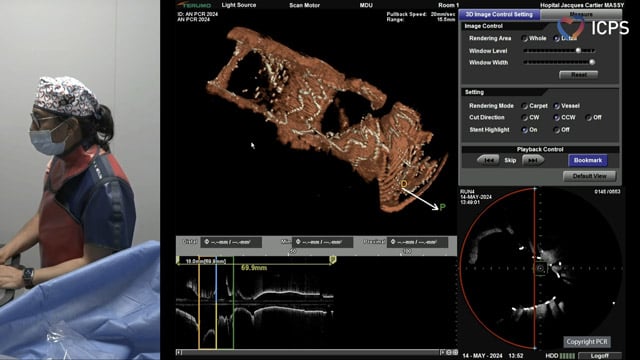
Solutions for complex CTO scenarios
18 May 2023 – From EuroPCR 2023
Explore innovative solutions for complex chronic total occlusion (CTO) scenarios in this session: witness the skillful technique of snaring a protruding aorto-ostial coronary stent, discover the application of the intracoronary rendez-vous technique in managing challenging CTO lesions, delve into a case series showcasing a novel concept...
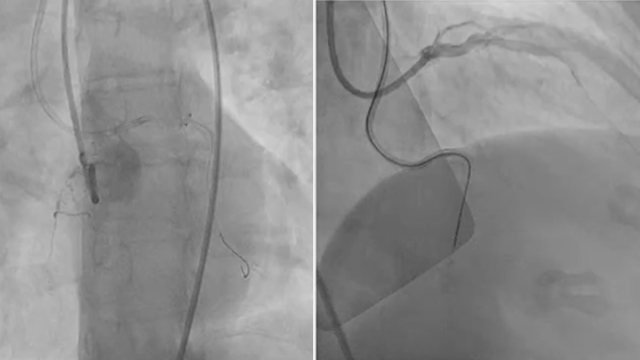
Percutaneous LAA closure 2.0
17 May 2023 – From EuroPCR 2023
In these slides, delve into advanced Percutaneous LAA Closure 2.0. Optimise procedure planning, grasp key post-procedural follow-up aspects, master essential tips for WatchmanFLX and Amulet device implantation, and much more.
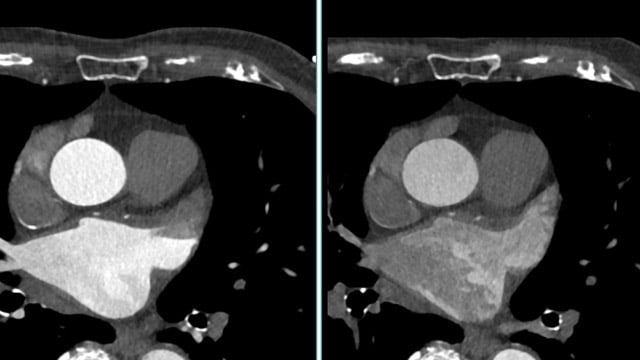
Imaging in LAA occlusion: from planning to final assessment
19 May 2022 – From EuroPCR 2022
Consult this session to learn about imaging supporting LAA occlusion procedure, how to combine different imaging techniques to guide this intervention and their value for procedure planning.

Left main and complex bifurcation PCI in high bleeding risk patients
View the life challenging case of a 90-year-old male patient with a very active lifestyle but hypertension, dyslipidemia, ex-smoker, who presented with left main bifurcation lesion, and appreciate the value of transradial approach for left main and complex bifurcation PCI, acknowledge Ultimaster DES results in bifurcations and high...
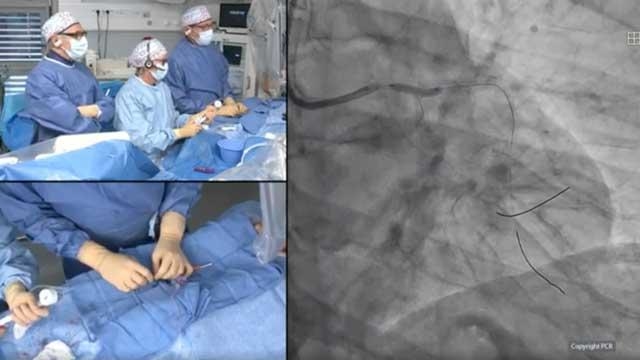
A Cypher implanted 15 years ago
24 May 2019 – From EuroPCR 2019
Consult this session to discover a LIVE demonstration from Institut Cardiovasculaire Paris Sud - Massy, France, regarding Cypher implantation. The patient here is a 85 years-old female with a Cypher implanted 15 years ago, presenting now with exertional angina. Angiogram shows long LAD stenosis. Watch the...

LAA Closure - LIVE Case
23 May 2019 – From EuroPCR 2019
Consult this session to learn more about how to efficiently manage LAA closure for stroke prevention, thanks to a compelling LIVE demonstration from Institut Cardiovasculaire Paris Sud, France, during EuroPCR 2019. Discover the case of a 81 years-old female with intracranial hemmorrhage and multiple cerebral cavernomatosis; watch the treatment...



